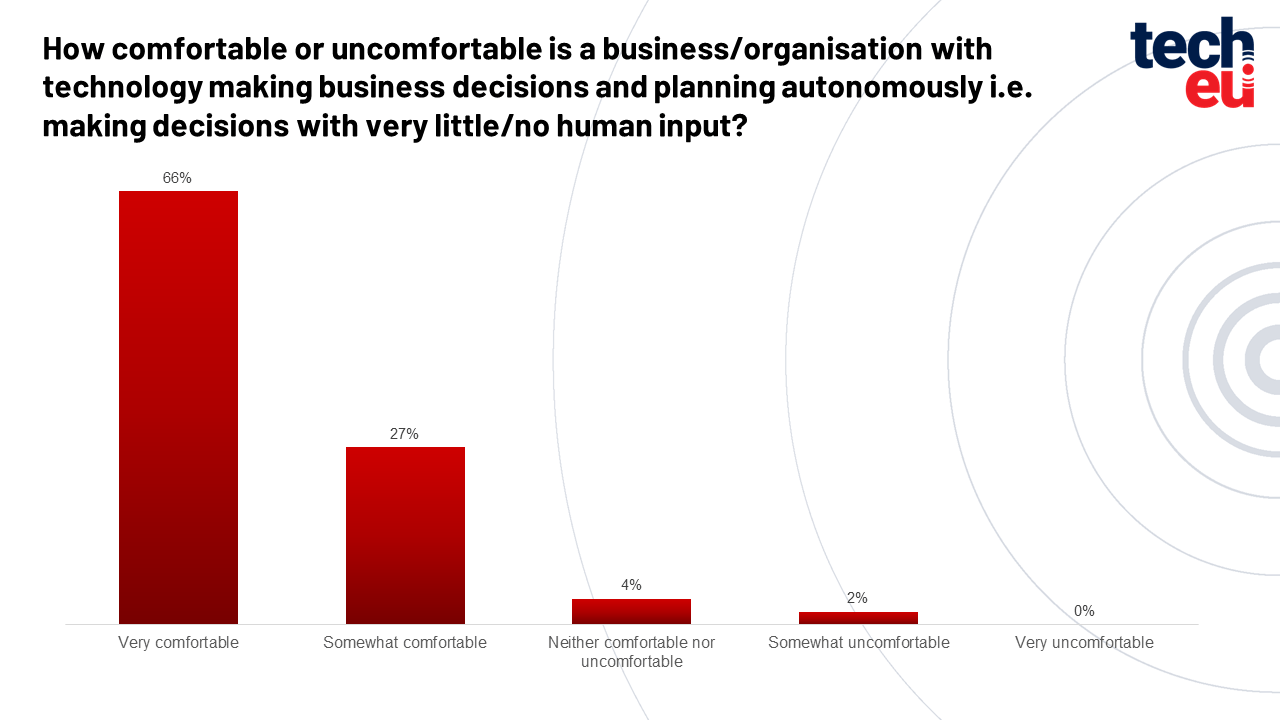A number of changes over the last few years have presented additional and very important challenges that have affected the work environment and development in uncertain and unstable macroeconomic conditions. Moreover, companies face additional pressures when it comes to the implementation and strengthening of ESG measures, the blistering pace of AI developments, and the overall acceleration of technological development.
When we look back and see how quickly these changes have happened, it's clear that such trends will continue in the future and the question of "should we?" is no longer an option for companies that want to stay in operation. The writing is on the wall: adapt or die.
According to a report published by business process simulation platform Silico titled Forewarned is forearmed, almost all UK businesses (94%) are comfortable with technology taking charge of decision-making and autonomous planning with little or human involvement, indicating a departure from 'gut instincts' or 'intuition' to influence the direction of their business.

As previously stated we are witnessing an era of unprecedented technological development, particularly in a segment where tools that can help in decision-making processes are seeing rapid adoption. When it comes to reducing planning admin, recapturing precious time, and gaining an oversight of the future, emerging technology holds the key.
An example of such influence is Artificial Intelligence (AI) and digital twin technologies, both of which are now seen as integral to decision-making and business planning efforts.
Supporting this notion, according to Silico's research:
- 93% of UK businesses feel AI will be 'very important’ for making strategic business decisions over the next 12 months,
- 55% are seeing AI as critical to making decisions in the same period,
- 69% claim to already use Digital Twin technology to inform their business planning, and
- 22% are planning to introduce Digital Twin technology into their business over the coming years to guide their business planning.
"In the face of an increasingly difficult macro environment, it’s little wonder that businesses are becoming more risk-averse, leading to a reluctance to innovate and improve. But this hesitance stifles growth and leads to stagnation. Business Process Simulation offers a solution to this challenge.
By allowing companies to test and analyse various scenarios in a controlled environment, process simulation can help businesses overcome their fears and embrace change. This powerful tool encourages continuous improvement and innovation, ensuring that businesses not only survive but thrive, even in the most uncertain times." - John Hill, CEO at Silico
Although the data shows that companies are very aware of the benefits and possibilities of technological solutions in the process of adapting to new business conditions, it seems that they are also concerned about business success and survival in a deeply turbulent global economic environment.
Thus, 74% of British companies, especially in the IT and communications sector, said that they are worried about how well their business will cope with the current economic pressures, especially because they believe that excessive planning takes up their company's time and resources. In addition, a significant number of companies (89%) believe that current inflation rates in the UK make strategic planning extremely or very challenging.
Aware of all the current challenges, they want to adopt the latest emerging technologies with the aim of reducing the time needed for planning and thus strengthening productivity, which would result in a better focus on adding value where it really counts. So, it is clear that today the need for intelligent planning is greater than ever before.
Of course, it should not be a burden on the company's resources, but a tool that will help them in their business. That is why it is up to companies to use the whole range of available tools to get one step ahead and be competitive in the market.



Would you like to write the first comment?
Login to post comments